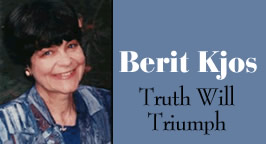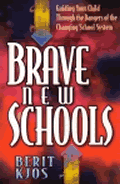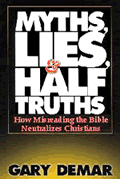Other Kjos Articles:
Harry Potter and The Postmodern Church
Popular Occultism and the Consensus Process
Legalized Mind Control Part 1Harry Potter And The Chamber of Secrets
Part 1
Hegelian Alchemy And
Mind Changing Games
Part 2
Pagan Fantasies Join The Digital Explosion
Part 3
The Global Message Behind Mystical
Thrills
MARKETING THE OCCULT
By Berit Kjos
November 22, 2005
NewsWithViews.com
"Weak-kneed muggles may recoil from 'Harry Potter and the Goblet of Fire.' Dubbed 'Scary Potter' in the British press, the latest screen adaptation of J.K. Rowling's increasingly dark books is the first in the franchise to be slapped with a PG-13 rating."[1]
�Spiritual transformation... is mediated through a person's religious imagination."[2] Lancaster Theological Seminary
As the movie begins, Harry Potter is dreaming. A large serpent slithers out of the darkness, and Harry hears the cold, hissing voice of the murderous Voldemort. This evil wizard -- whose body had been decimated during a futile attempt to kill Harry thirteen years earlier -- is instructing his groveling servant Wormtail. Their deadly plot would require Harry's life. "I will not disappoint you, my Lord," Wormtail promises.
This nightmare introduces a major theme of the story: Voldemort is planning his return to a physical body through a blood sacrifice involving the 14-year-old student wizard.
Compared to Voldemort's wicked plans and heartless brutality, Harry's magical training seems downright good. So when the dark scene above is replaced with Ron Weasley's fun-loving home (where Harry and Hermione are finishing up their summer break), all seems well. Who cares if these friendly folks are all witches and wizards? Here paganism seems normal! Never mind that the supernatural forces they manipulate correspond to those of Satan rather than God. In this enticing setting, the occult realm feels good to the unthinking audience. .
Those affirming feelings are important. They help the audience identify with the "good" wizards and -- through the imagination -- participate in the action. When Harry triumphs, the viewers share the exultation. When danger threatens, they feel Harry's anxiety. This emotional bond silences the moral reasoning that should warn Christians that this plot is displeasing to our Lord.
Led by Mr. Weasley, the group hurries to a hilltop "portkey" which magically transports them to the celebrated Quidditch World Cup festivities. But the popular event is interrupted by an invasion of Voldemort's Death Eaters. As this ruthless horde spreads fire and destruction, the spectators flee for their lives.
The students return to Hogwarts School for Witchcraft and Wizardry. They are greeted by a new, less gentlemanly version of Professor Dumbledore, who introduces the Triwizard Tournament. Like the real-world Olympics, this international contest is supposed to build peace and co-operation between diverse pagan groups.
Its three contestants are magically chosen by the Goblet of Fire. Surrounded by what looks like a ritual "sacred circle," this "sacred" goblet spews out three names that are read by Dumbledore and cheered by the crowd. But the goblet has a surprise in store. A fourth name appears: Harry Potter. Some complain that the famed wizard is too young to qualify, but the goblet's choice prevails.
Mad-eye Moody, the new Defense of the Dark Arts, helps Harry prepare the spells and curses needed for victory in the upcoming tournament. But this undercover agent for Voldemort is no true friend. Though he teaches Harry defensive strategies, his classroom instructions expose his values and puts these shocking suggestions into young minds:
"Reducio," said Moody softly. "You don't need thumbscrews or knives to torture someone if you can perform the Cruciatus Curse.... Anyone know any other [spells]?
Hermione's hand shook slightly as, for the third time, she raised it into the air.
"Yes?" said Moody, looking at her.
"Avada Kedavra," Hermione whispered. ...
"Ah," said Moody, another slight smile twisting his lopsided mouth. "Yes, the last and the worst. Avada Kedavra... the Killing Curse."[3]
I'm not saying that the movie would drive its audience to actually torture or kill anyone. The effects of these suggestions are far more subtle. They fit into the dialectic process -- conceived by occultist Georg Hegel and embraced by Marx and Lenin and other revolutionaries. This process calls for social change through continual exposure to opposing beliefs and values (thesis versus antithesis). The tension or conflict created by those contradictions prompt traditional thinkers to compromise and conform to an evolving consensus (synthesis). Christians are not immune to this mind-changing process.
The goal of this revolutionary process is to change the way most people think and relate. The contrary suggestions will gradually "free" minds from the old absolute truths and values of the Bible. After a while, people will no longer react negatively to the evils that God abhors. Their conscience is desensitized. Everything becomes tolerable except Biblical truth, which exposes sin and draws a politically incorrect dividing line between what God calls good and evil.
Human nature naturally delights in occult or violent entertainment! In ancient Rome, the thrill-seeking masses flocked into the huge Coliseum to be energized by gory gladiators and Christian martyrs torn by hungry lions. Centuries later, during the anti-Protestant Inquisition, the crowds gathered to watch the bloody spectacles of hanging, burning, beheading and quartering. Only a few decades ago, the evil Darth Vader became the most popular Star Wars character. And today, the public's growing thirst for blood and gore is partly quenched through vicious games and movies. Do you wonder what will satisfy that craving ten years from now?
Knowing our weaknesses better than we know ourselves, God rebuked his rebellious people long ago with these words:
"You love evil more than good...." Psalm 52:3
"All those who hate me love death.� Proverb 8:36
"Woe to those who call evil good, and good evil...." Isaiah 5:20-21
The final showdown with Voldemort demonstrates most of the forbidden "abominations" listed in Deuteronomy 18:9-12: witchcraft, sorcery, spellcasting, spiritism, and necromancy (communicating with the dead). "All who do these things," warned Moses, "are an abomination to the Lord..."
That list of timeless occult practices is a warning, not only to those who actually participate in occultism, but also to those who merely imagine the these things. Jesus explained this principle in the context of immorality: �You have heard that it was said to those of old, �You shall not commit adultery.� But I say to you that whoever looks at a woman to lust for her has already committed adultery with her in his heart." Matthew 5:27-28
The transformational power of the imagination is documented in a study by International Journal of Adolescent Medicine & Health:
�The world of imagination and fantasy can help pass on to the child cultural and social messages [and] function as a way to experience vicariously things an individual could not do first-hand.�[4]
In light of these warnings, ponder this last scene:
"...suddenly, the sparks emanating from the cauldron were extinguished... Through the mist in front of him, he [Harry] saw, with an icy surge of terror, the dark outline of a man, tall and skeletally thin, rising slowly from inside the cauldron.... Whiter than a skull, with wide, livid scarlet eyes and a nose that was flat as a snake's with slits for nostrils.... Lord Voldemort had risen again." (643)
"He knew he was facing the thing against which Moody had always warned... the unblockable Avada Kedavra curse -- and Voldemort was right -- his mother was not here to die for him this time." (660)
"Voldemort's dead victims whispered as they circled the dueler.... And now another head was emerging from the tip of Voldemort's wand.... Harry, his arms shaking madly now, looked back into the ghostly face of his father. 'Your mother's coming...' he said quietly. 'She wants to see you.... When the connection is broken, we will linger for only moments.... you must get to the Portkey, it will return you to Hogwarts.'...
"Harry..." whispered the [dead] figure of Cedric, 'take my body back, will you?'...
"'Accio!' Harry yelled, pointing his wand at the Triwizard Cup. It flew into the air and soared toward him. Harry caught it by the handle. He heard Voldemort's scream of fury at the same moment that he felt the jerk behind his navel that meant the Portkey had worked -- it was speeding him away in a whirl of wind and color, and Cedric with him.... They were going back." (667-669)
The movie mentions Harry's choice "between what is right and what is easy." Harry had supposedly chosen what was "right." At least, that's how today's pluralistic, amoral world would see it. But would Harry's choices be "right" for Christians? Of course not!
Today's emphasis on group conformity and consensus builds an ever-changing moral and spiritual understanding. An important part in that process of change is cognitive dissonance -- mental or emotional confusion. It occurs when people think or act in ways that may feel right but clashes with their Bible-based conscience. The natural or most comfortable way to resolve this confusion or dissonance is simply to adapt their moral understanding to the new situation.
For children tutored in paganism by popular authors, movie producers, and computer programmers, there may be no turning back. The images they imprint on their minds cannot be erased by the human will. Aldous Huxley summarized it well in The Doors of Perception: "The man who comes back through the Door in the Wall will never be quite the same as the man who went out."[5]
We would be foolish to ignore the restless cravings stirred by imagined experiences in forbidden realms. A little dabbling in the occult usually fuels urges to explore other practices. It doesn't matter whether seekers pursue Eastern pantheism, Western witchcraft, or create their own personal blend. In our times, these all fit together. [See The Rising World Religion] Whether packaged for our youth as D&D, yoga or Hogwarts School for Witchcraft or Wizardry, they desensitize their captive fans to the dangers of occult forces. And all too often they become irresistible to the enthusiastic victim.
On the other hand, each time we say "no" to the ever present temptation to accept the world's counterfeit gods, idols, thoughts and ways, we honor God and strengthen our will to resist. When we set our minds to know, love, and follow Him, He gives us the power and perseverance to triumph over the world's counterfeit promises, tempting deceptions, and painful persecution.
"For the weapons of our warfare are not carnal, but mighty through God to the pulling down of strongholds, casting down imaginations, and every high thing that exalts itself against the knowledge of God, and bringing into captivity every thought to the obedience of Christ...." --2 Corinthians 10:4-5
Footnotes:
1.
Rebecca Louie, "Goblet'
brims with fear," New York Daily News, 11-13-05
2.
Lancaster Theological Seminary, USA, UMI Order number: AAM9822985 Dissertation
Abstracts International Section A: Humanities & Social Sciences. 1998
Jul. 59 (1-A): p.0201
3.
J.K. Rowling, Harry Potter and the Goblet of Fire (Scholastic Press,
2000); page 215.
4.
Aminadav, C., International Journal of Adolescent Medicine & Health,
April-June 1995.
5.
Aldous Huxley, The Doors of Perception (Chatto & Windus Ltd., 1954).
Sign Up For Free E-Mail Alerts
E-Mails are used strictly for NWVs alerts, not for sale
Berit Kjos is a widely respected researcher, writer and conference speaker. A frequent guest on national radio and television programs, Kjos has been interviewed on Point of View (Marlin Maddoux), The 700 Club, Bible Answer Man, Beverly LaHaye Live, Crosstalk and Family Radio Network. She has also been a guest on "Talk Back Live" (CNN) and other secular radio and TV networks. Her last two books are A Twist of Faith and Brave New Schools. Kjos Ministries Web Site: http://www.crossroad.to/index.html
Virtually banned from American schools in the early sixties, the Bible has faced a rising onslaught of wrath, ridicule, and legal assaults.










